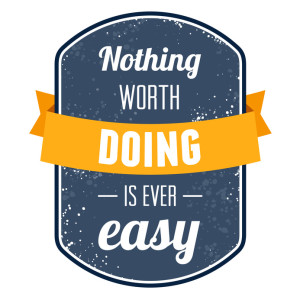For new and aspiring writers it’s sometimes difficult to decide on the type of genre that you want to write for. This includes whether you want to write fiction or nonfiction, write on your own website (a blog), or become a copywriter. So how do you decide which type of genre writing is for you?
Finding your writing genre or niche is based on two things:
- Write about what you know
- Write about what you’re prepared to become an expert in
You will need to find a way that helps you focus where you will spend your time writing. Starting with what you know and are passionate about is always the top recommendation. However, if you’re prepared to spend the time and become a subject expert then you can delve into a genre that you know little about but have always wanted to learn (passion and curiosity will take you far).
Fiction Genres
If you haven’t discovered the value of Writers Digest, whether through their magazine or online, then you owe it to yourself as a writer to check out the incredible resources they have, both free and paid.
If you’re struggling to determine your genre then here’s a great free download that will give you a quick overview of the various genres. Fiction Genre Descriptions – Free Download.
I’ve referenced this myself to get a quick snapshot of the various subjects to write for. That being said, given that I write Western novels, I found it interesting that my specific genre was not listed except as “Historical Romance” (quite popular for some time). Regardless, this is still an excellent resource to help you focus your writing.
Non-Fiction Genre
If you want to enter the world of non-fiction then typically you would already be an expert or you will know how to draw on expert resources. Readers are looking for accurate information and you must be able to quench their thirst when they come looking.
Whether you want to write about finances, photography, or even “How-To” books it’s still implicit that you are a subject-matter expert or that you direct your reader to those who are the experts. An area of specific concern is the medical or health-related field. You don’t want to jump on the bandwagon just because it’s popular and you think “it sells”. You must accept the responsibility of providing accurate and truthful information when you are advising your readers about their health and well-being.
Wikipedia also offers a great list of genres that includes not only literary categories but also film and television, video, and music. You can find this free resource here at Wikipedia – List Of Genres.
Tips To Help You Decide
Deciding on your writing genre is not always easy and far too often we tend to second-guess ourselves. Here are some ideas that will help you decide your genre.
What Resonates With You?
When you read the resources given above which topic jumped out at you? Which one(s) did your eye naturally go to or pause on? Don’t think, “Oh, I could never write in this genre even though I like to read it.” This may very well be the topic you need to write about because you do know it so well.
As an example, I grew up reading Tarzan by Edgar Rice Burroughs and then Westerns, primarily Louis L’Amour. Guess what my first book was…a Western (and no, I didn’t put Tarzan in the Wild West but my main character has Tarzan-like abilities).
Don’t Write It Because You Think It’s Popular
I think this is one of the greatest quandaries for writers: am I writing to make money or to state some universal truth? I believe that as book authors our goal is to be published and, if we’re successful, we will make money. That is why we want to be published.
But we must also offer value. Don’t write something because it’s hot or “trending”. Look at the recent death of Robin Williams; how many posts and stories were written about him because it was the hot thing to do. I only read the ones that offered insights into the man because I think that as brilliant as he was onstage he was so giving to others but yet hurting so much on the inside. That’s what I wanted to learn about the man.
My goal of writing Westerns (and they certainly are not trending right now) is to offer light reading that is entertaining and allows the reader to escape from the real world for a few hours. Perhaps some of my life thinking and values infuse themselves in the story but I mean only to entertain.
Be True To You
Stick to your values, those things that are important to you and that you want to be known for. Murder and mayhem are fine if it’s within the context of good storytelling. Do you think Stephen King minds that he is known as a horror writer? He’s a good writer and pulls you on with his skill and vision as a writer…that would be his legacy.
The goal of writing is to be published and the affect of being published is to be public. So you want to ensure that your work is something you will be proud of and willing to put your name on.
Write Out Your Pros And Cons
 As with everything taking the time to write out why you should or should not do something or how to decide things like a genre or business opportunity or what to study in post-secondary is worth the time doing.
As with everything taking the time to write out why you should or should not do something or how to decide things like a genre or business opportunity or what to study in post-secondary is worth the time doing.
Brain-storm your list, both for and against. Just let the ideas come and you will see ideas and patterns emerging. But also look for the broader hints your list is giving you. Maybe for career or school you’re seeing things like teaching, the service industry, or health care. What you will notice is that the overarching theme is people and helping them in some way. This tells you that you are a people-person and like to help or instruct.
This is the same as your writing. Do you want to entertain, instruct, cause others to reflect or help? You will see the same type of overarching themes emerge when you write out your pros and cons for various genres you may want to write for.
What Do You Read Now?
Take a look at your bookshelf or Kindle, what are you reading all the time? Action, romance, how-to? This is an easy way to determine your genre because guess what, you’re already becoming a subject-expert.
Another benefit of writing about what you read is that you also know what sells. What attracted you to that book? What were you looking for and did the book meet your needs (if it didn’t maybe you need to write about what the book missed). You know what kept you turning the pages so as an author you will know what will keep your readers turning your pages.
Write Short
An excellent way to find out what genre you want to write for is to write short stories or blog posts about it. This will give you the chance to try your hand at writing for this topic and decide if you have the ability and passion to do so.
Whether you post these on your own website or share them with family and friends you want to find out what others think. Did it resonate with them or was it entertaining and funny? Get their feedback and don’t be afraid to ask them if they would read more of the same from you.
Your Genre Must Feel Natural
You’ll know if you’re forcing your writing or if it’s flowing easily from your pen or keyboard. You’ll feel “in the groove” and be excited by what you’re creating. And you’ll be scribbling notes and get lost in your story regardless of where you are or what you’re doing. Then you know you’re onto something big…your genre.
But if you’re avoiding your book or if you feel like the words are stilted or sound like someone else then you know that this is not the genre for you. Or, at least, this is not the book for you to be writing in that genre. Appreciate the lessons learned and tuck that piece away and move on.
Your readers will also know that it’s forced and not natural. They will feel uncomfortable and be squirming as they’re reading…and then will shelve the book and never come back. And they may never read another word of yours.
So, What’s Your Genre?
 Don’t waste a lot of time to decide but do take the time to properly decide. And realize that your first selection may not be your last or final selection. You can read about how to decide until you’re blue in the face or be thinking that you’re not writing until you have “the perfect genre” that will give you success as a writer.
Don’t waste a lot of time to decide but do take the time to properly decide. And realize that your first selection may not be your last or final selection. You can read about how to decide until you’re blue in the face or be thinking that you’re not writing until you have “the perfect genre” that will give you success as a writer.
But at some point you must stop researching and start doing – you must write in order to be a writer! In the final analysis, even after reading the tips I’ve provided above, search your inner self because I think you already know the genre you want to write for…write that!
